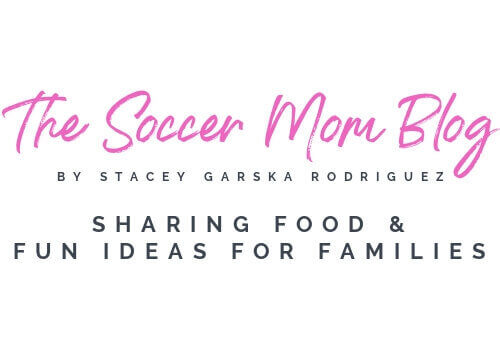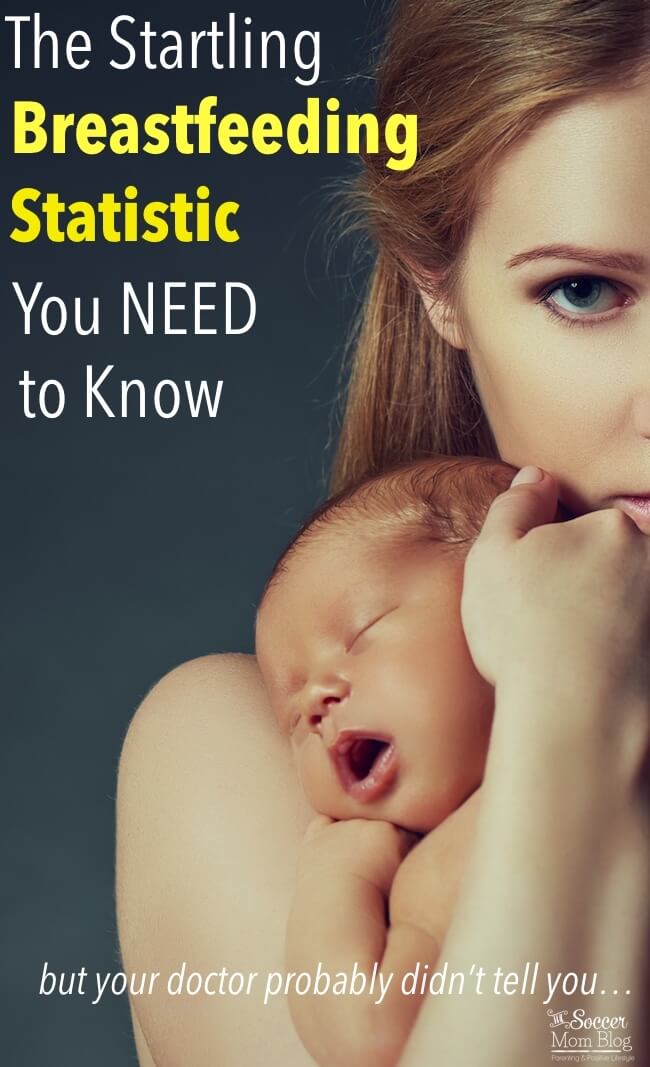What We’ve Been Told
Breast versus bottle is a topic of intense debate, and discussions about the subject can get pretty heated.
I’ve often seen the claim made: it doesn’t matter how you feed your baby, so long as they are being fed.
Yes, I agree that feeding your baby at all is most important — but I think we all know that. What I take issue with are the claims that formula is “just as good” as breastmilk.
Before I go any further, I want to make one thing clear: this is not a post bashing formula or moms that use formula to nourish their babies. This is a post meant to dispel widely-circulated misinformation. Without the full truth, how can mothers make an informed decision about whether or not to breastfeed?
Why I Care
Breastfeeding education is a cause that is near and dear to my heart. Breastfeeding did not come easily for me, but it was something I was determined to do. The support of a few close friends and family was crucial in me persevering through the early days. My goal is to provide encouragement and education to other new moms who might not have a personal support network.
I was honored and thrilled when UNICEF reached out to me to join in spreading the word about some surprisingly not well-known facts about the importance of breastfeeding and newborns.
Prior to World Breastfeeding Week (celebrated worldwide August 1-7th of each year), UNICEF released a study showing that nearly 77 million newborns globally are not breastfed within the first hour of their life. Delayed breastfeeding increases the risk of death in the first month by up to 40%.
Even in high-income nations with readily accessible health care, breastfeeding is crucial to infant health.
However, educating mothers (and fathers) about these facts is where the medical system is failing us.
The Breastfeeding Statistic You Need to Know
The Lancet (a widely-respected medical journal) published a Breastfeeding Series in January 2016 which included a startling statistic:
“Breastfeeding might also protect against deaths in high-income countries. A meta-analysis of six high-quality studies showed that ever breastfeeding was associated with a 36% reduction in sudden infant deaths. Another meta-analysis of four randomized controlled trials showed a 58% decrease in necrotizing enterocolitis, a disorder with high case-fatality in all settings.”
To put it simply: Breastfeeding may lower the risk of SIDS.
Let that sink in for a minute.
Whether you breastfeed exclusively, or even partially, your baby reaps the life-saving benefits.
Where our Medical System Fails Us
Did your doctor mention that during your prenatal care, or even after delivery? Mine didn’t. And that is what angers me.
SIDS is a silent killer and is not completely understood. Because we don’t know exactly what causes SIDS, it is a terrifying fear for new parents.
When researchers discovered that “belly sleeping” was a risk factor, there was a worldwide campaign to teach parents about the importance of putting babies to sleep on their backs. These efforts led to a “dramatic decreases in SIDS rates” in all participating countries.
So why are we not telling new parents that breastfeeding can also help protect their babies from SIDS?
Is it because our doctors and nurses simply don’t know all the facts themselves? Or are they pressured by companies with deep pockets and vested interest in formula sales?
Whatever the case, this needs to change. Our parents deserve to have ALL of the facts.
Other Benefits to Breastfeeding for Baby AND Mom
- Protection against childhood infections
- Stimulates brain and IQ development
- Reduces the likelihood that baby will be overweight or have diabetes later in life
- Lower risk of breast cancer in breastfeeding mothers
- Possibly protects against ovarian cancer
The Lancet study claims over 20,000 deaths by breast cancer are potentially preventable by breastfeeding — EVERY YEAR.
Perhaps most fascinating: “breastfeeding provides a personalized medicine to a baby, since it helps transfer immune responses from the mother to her baby that are specific to the environment in which the mother-baby pair live.” (Source: UNICEF)
Essentially, your body communicates with your baby’s body via breastfeeding. Your body is then able to produce a unique breastmilk tailored to meet your baby’s nutritional needs. Truly amazing.
What if a Mother Can’t Breastfeed?
While many mothers worry about low milk supply, the reality is that most DO produce enough milk. According to renowned parenting and breastfeeding resource KellyMom.com “If your baby is gaining weight well on breastmilk alone, then you do not have a problem with milk supply.” And remember, even a little breastmilk can provide major health benefits.
However, in cases where breastmilk from the mother is not an option, Maaike Arts, Nutrition Specialist, Infant & Young Child Feeding at UNICEF suggests using donor milk whenever possible.
Arts explains: “In general terms, although the pasteurization process affects some of the properties of donated human milk, donor milk is preferable to artificial feeding from a health perspective, especially for sick and small newborns. The concrete options to provide a viable alternative to breastmilk, if needed, are best discussed on an individual basis between parents and health care providers.”
What YOU Can Do to Help Save Lives
- Share this information! If you discovered something that could save lives, wouldn’t you tell everyone you know? Too often we worry about saying things for fear of offending someone. However, there is a difference between criticizing parenting choices and sharing life-saving knowledge.
- Reach out to a new mom — Do you know someone who recently had a baby? She might be struggling, but too proud to ask for help. Offering tangible assistance with things like meals, laundry, or babysitting older siblings may reduce stress and exhaustion that can interfere with successful breastfeeding. Emotional support is also critical for new moms, and something you can’t have too much of!
- Donate breastmilk — If you are fortunate to produce excess breastmilk, consider donating to help moms in need. One of my closest friends produced more than her baby could ever use, so she froze the extra and gave it to her coworker who couldn’t breastfeed. There are also hospitals and charitable organizations that are always in great need of donor milk. Click here for more ideas on where to donate breastmilk.
- Demand straight answers — If your doctor or midwife doesn’t volunteer information or resources on breastfeeding, ASK. If you are uncomfortable with the advice they give, perhaps it is time to re-consider your care provider. (If you only knew some of the things my readers have shared with me that their doctors said)! You deserve a medical professional that will make you feel comfortable and is open and willing with the information you need.
Disclaimer: I am not a medical professional; however, I wrote this post with the support and knowledge base of the experts at UNICEF, to which I am extremely grateful. A special thank you to Sophie Aziakou of UNICEF for facilitating this collaboration and to Maaike Arts of UNICEF for answering many of my questions. I was not compensated in any way for this post. Breastfeeding is a passion of mine and my goal is to help new moms get the information they need and deserve.
More Information on Breastfeeding
The Womanly Art of Breastfeeding from La Leche League is one of the most comprehensive books on the subject. I highly recommend it those who are considering breastfeeding.
READ MORE of my own posts on Pregnancy and Breastfeeding.
Follow my Pregnancy and Breastfeeding board on Pinterest for some of the best articles from other parenting bloggers and websites:
Follow Stacey @ The Soccer Mom Blog’s board Pregnancy & Breastfeeding on Pinterest.
- Paper Chain Octopus Craft - April 24, 2024
- Amish Sugar Cookies - April 19, 2024
- Marshmallow Playdough - April 18, 2024


Christi says
My doctor and my small, rural hospital staff have always been extremely supportive of my breastfeeding. They encourage skin-to-skin for the first hour or two after birth before the baby is weighed or anything. When (in spite of early breastfeeding or attempts to that end) my daughter grew very slowly for her whole first year and my son refused to breastfeed for his entire first 24 hours, they still very much supported my breastfeeding. It drives me nuts when people act like it’s all doctors/hospitals vs. breastfeeding. For crying out loud, even FORMULA companies say “breast is best.”
Stacey aka the Soccer Mom says
Hi Christi, I am so happy to hear that you had such a positive breastfeeding experience and supportive hospital team. Unfortunately for many moms this is not the case, and that is why I wrote this particular article. I want all moms to have the experience that you did!